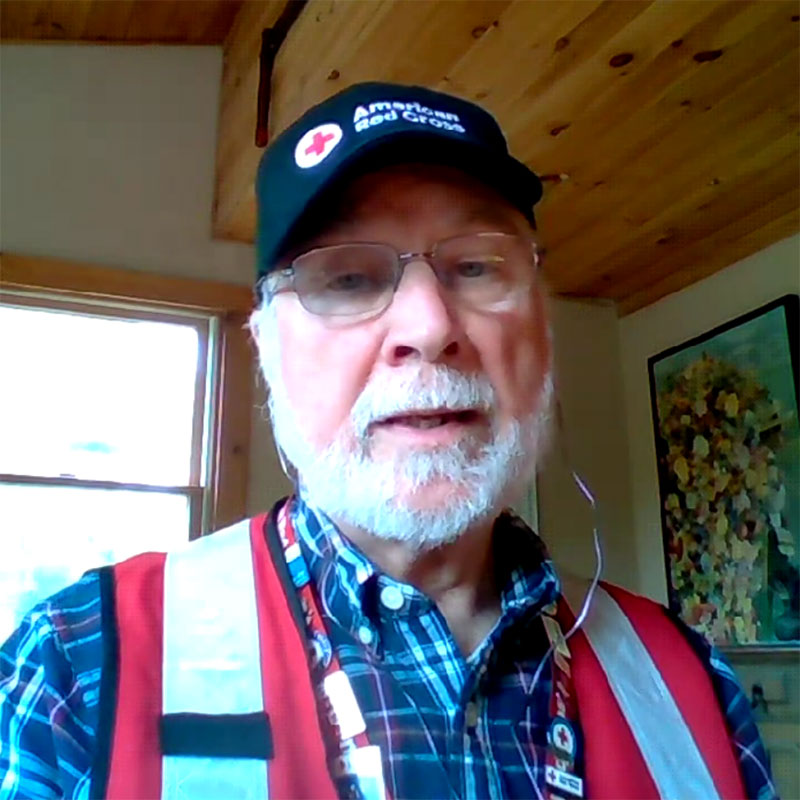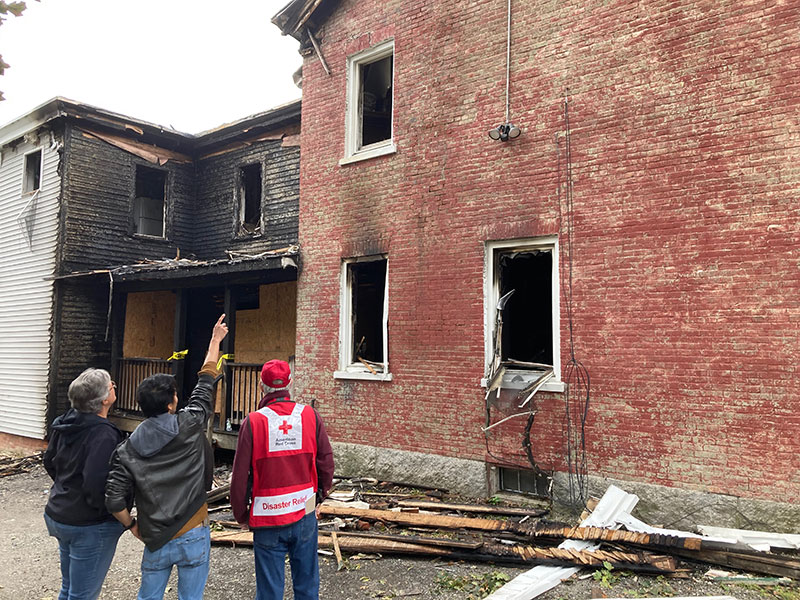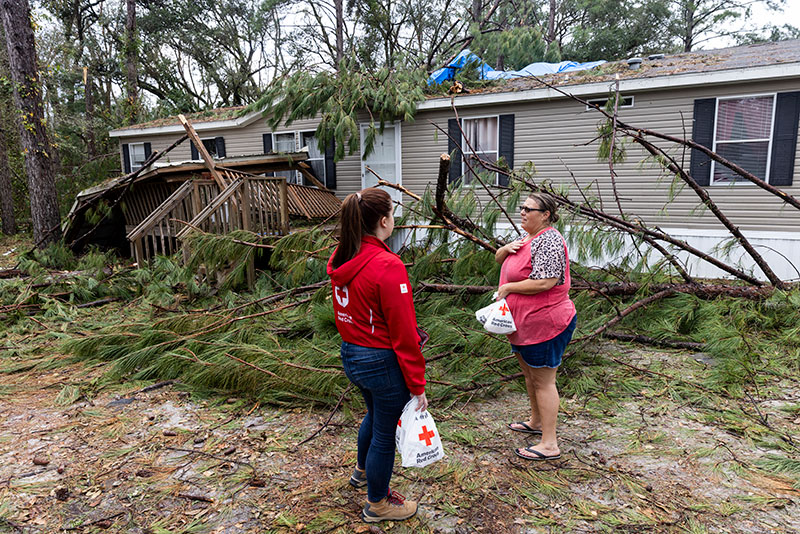By Dan Dowling, regional communications manager
“People often ask, ‘How do you manage to deal with folks who have been through this kind of difficult situation?’ My answer is that it is challenging, difficult work at times, but there's a sense of giving back for what we've accomplished in the field.”

Bob Jolley is a disaster mental health supervisor with the American Red Cross of Northern New England. In his role, he provides psychological first aid to those in the wake of a home fire or other disaster.
The American Red Cross is responding to nearly twice as many large disasters as we did a decade ago. As the intensity and frequency of severe weather continues to devastate communities, we know the toll goes beyond physical damage.
Experiencing a natural disaster or other emergency can be intensely stressful. Even when the immediate danger has passed, the impact can still be felt. People may feel grief or anger over the damage or loss, fear or hopelessness when thinking about rebuilding their lives, or they may simply feel overwhelmed and not know how to begin. Taking those first steps toward recovery can be easier with a little support.

“We provide support for people who have emotional or psychological needs as a result of the disasters that they've experienced,” says Jolley. “What we don't do is therapy. We don't do formal evaluations of people's mental health status and provide diagnosis. Most of our work is very short term. There's no lengthy counseling or connection with people. Generally, the deployments on even the largest national disaster responses are two to three weeks.”
There are more than 3,000 disaster mental health volunteers who currently serve with the Red Cross. They use their compassion and professional skillset to provide aid in a variety of ways, whether it’s fostering a positive culture in disaster shelters, being a patient listener for someone who needs to talk about what they’ve gone through, or even spotting early signs of traumatic stress that can be referred for specialist care. Disaster mental health volunteers are an integral component to a community’s rebuilding and recovery process.
The Red Cross responds to more than 60,000 disasters every year. In most cases, disaster mental health volunteers are dispatched to work with individuals after a local home fire, but these trained professionals are also deployed during larger scale disasters, like hurricanes, wildfires or tornadoes, to provide much-needed emotional support.

Jolley says that every survivor has a different reaction to a disaster, for a variety of reasons. The job of a disaster mental health volunteer is to guide those survivors through the difficult early stages and to help prevent longer term difficulties in the future.
“It is common to see people in a fog or numbness in the first days after a disaster. At the other end of the variety are just hyperactive, who get involved in things very quickly. They are trying to solve problems and trying to fix things. These extremes can be stressful, which can lead to greater difficulties,” explains Jolley.
Disasters can also be traumatic for children, who may express their stress and anxiety differently than adults. Jolley says that children may express fits of crying, whining, or screaming, and there may be examples of aggression or withdrawal.
“What we know about children and teens is that they generally function best when they're in a predictable kind of routine. Getting to school and getting back to their sports or after school activities and coming home and doing their homework, that routine is important,” says Jolley.
Not everyone requires psychological first aid after a disaster, but the Red Cross is ready to provide that support. Last year, over 500 disaster mental health volunteers across the country were deployed to a home fire or other disaster.
Jolley says that there is an abundance of opportunities for those who want to aid disaster survivors in the wake of tragedy. The goal of the program is to help people with their immediate short-term mental health after a disaster.
Are you a mental health professional with a master’s degree and a current license or certification in the United States or recently retired? Your skills are needed to help people facing the stress and trauma of disaster, or to facilitate skills workshops for service members, veterans and their families.
Please visit redcross.org to learn more.
Support all the urgent humanitarian needs of the American Red Cross.
Find a drive and schedule a blood donation appointment today.
Your time and talent can make a real difference in people’s lives. Discover the role that's right for you and join us today!